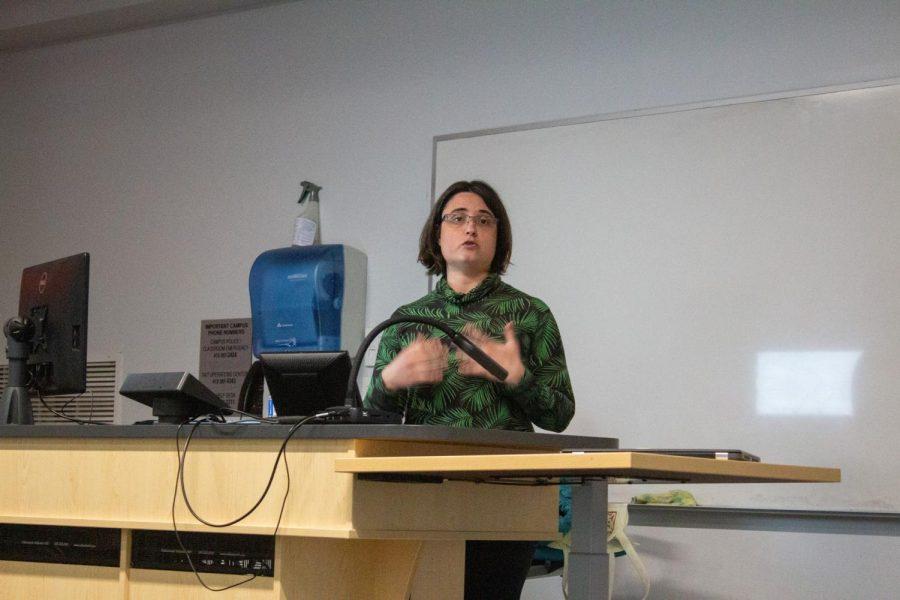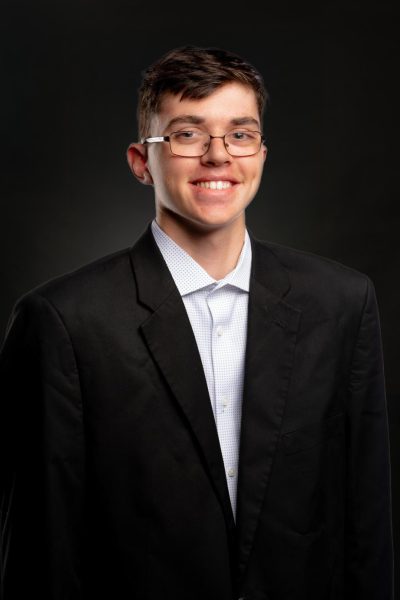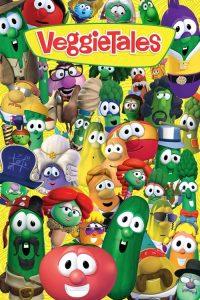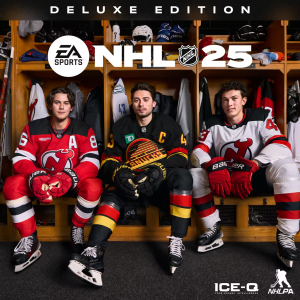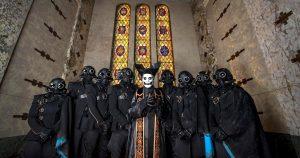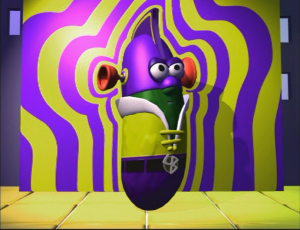Rooney Scholar Dr. Marina Fontolon Talks Localization in Video Games
Dr. Marina Fontolan gives lecture on the of games, and authenticity: perceptions from localizers. Photo credit: Ally Yovetich
March 24, 2022
Rooney Scholar Dr. Marina Fontolan is a “gamer first,” but coming from Brazil, Fontolan realized that some come to need or are lost in translation. The term “localizing” is the shift in language and culture. On Thursday the Center of Global Engagement hosted the lecture with the School of Engineering, Math, and Science, and the School of Informatics, Humanities, and Social Sciences hosted Fontolan’s lecture on video game localization.
Games like “Final Fantasy Legend II,” originally Japanese, are localized in a way for the gamer to “bond” with the game, understanding the references that are shown throughout. For example, in the original translation, they offer a reference to a Japanese poppy flower used to create opium. Nintendo America’s rules of no reference of drugs in their games forced them to change it to none other than bananas. Examples like these are regular when localizing video games from different cultures.
The importance of adapting to culture is critical and simply translating word for word would be confusing. Being from Brazil, Fontolan explained Fontolan did not understand a lot of American late-night celebrities. Fontolan explained to the students in Hopwood Hall Fontolan had heard of the name but could not recognize him or the references he would be referring to. The gamer would not experience a “connection to the game.”
Fontolan explained that at the beginning of localizing games, “a ton of Japanese games were being brought to the U.S. From there, several American companies created selling offices in Europe. They created the EFIGS acronym. English, French, Italian, German, and Spanish.”
However, since all these changes are happening, the game could become completely different from the original, and localizers like Fontolan understand the challenges.
“That’s the million-dollar question really for [localizers]. Many of them are sometimes are not sure whether or not to change too much with the original material,” said Dr. Fontolan.
Fontolan will continue to give lectures until the end of the semester.



